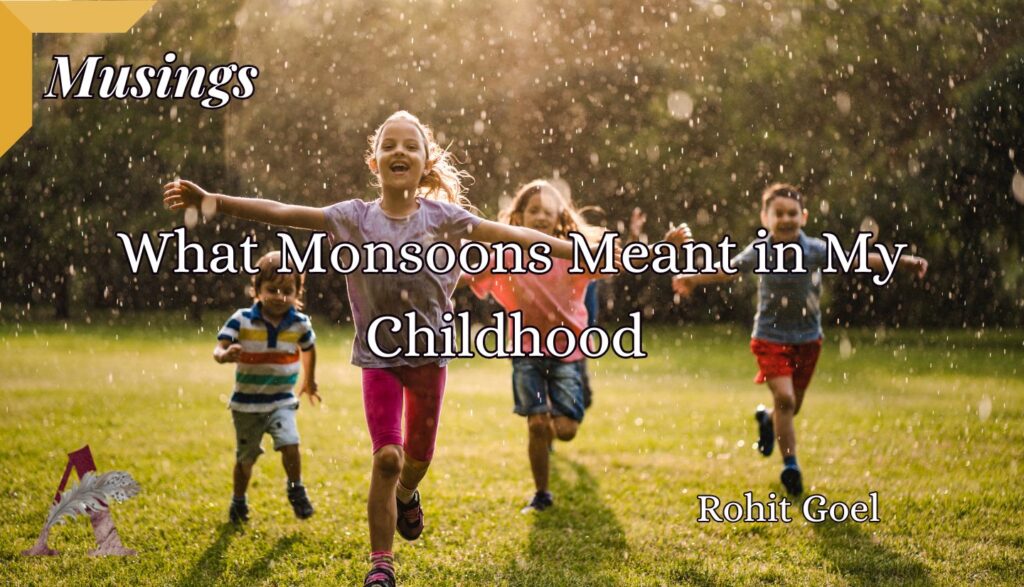
Monsoons connect the sky, the earth, and everything in between. They bring different emotions to different people that vary with age and stage of life. My childhood memories of monsoon, the moments lived and the emotions they evoked, are still as fresh as yesterday.
In my school days, the onset of each monsoon brought another new beginning with it: the beginning of a new academic session. A new classroom, some new teachers, new classmates, and sometimes new subjects too. Some of us came to school wearing raincoats, and some carried umbrellas. Some came walking and others on bicycles.
The rains used to be excessively heavy in the months of July and August. Rain-filled clouds made the entire atmosphere pleasantly dark, and we welcomed this darkness and wet weather after a hot and humid summer.
The heavy downpour, very often, resulted in low attendance at school. Power cuts and failures were common. There used to be no power backup in those days, and not all tube lights at school were always in working condition. Together, the low attendance and dark classrooms meant that no real teaching happened in those months. We did enjoy that, for sure. Sometimes, teachers would not come to class, so we could take the liberty of playing inside the classrooms as we wished.
Monsoon showers would fill the river that flowed through our town. The water flowed ferociously during those two to three months, making the river look like a real river, its otherwise dry and insignificant riverbed effortlessly becoming the spotlight of the town. Now I can reflect back on that river and see the ebb and flow of life quite literally.
The open water drains of our colony turned into tiny rivers of their own, dotted with our handmade paper boats. Even today, the rainy season reminds me of the water-filled potholes and how we would deliberately take our bicycles through them, lifting our legs from the pedals just when the tyre was about to touch the water; our mouths opened with joy and eyes squeezed tight in anticipation of the splash.
It’s because of these memories that I closely relate to the famous lines from the famous ghazal, ‘Woh kagaz ki kashti, woh barish ka pani…’ (‘That boat of paper, that water of rain…’).
Rohit Goel

0 Comments